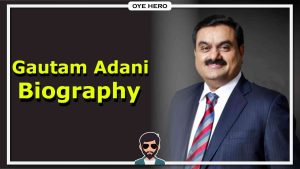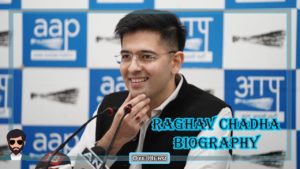Unacademy’s maverick founder, Gaurav Munjal, is establishing a business utilising nontraditional means. With loads of never-before-reported details, Moneycontrol analyses one of India’s most influential and polarising businesspeople.
Unacademy, an online learning platform, approached Testbook, a government board exams app, in mid-2019 to buy it.
Unacademy’s ambitious founder Gaurav Munjal, known for his get-it-done, neither any manner, led the discussions as usual. Munjal was not delighted when the founders of Matrix Partners-backed Testbook stated that they wouldn’t be selling.
According to a source close to the situation, he urged a human resources executive to “finish them out.” He wanted to bleed the Testbook dry because he couldn’t get it.
Quick Facts:
Born: 1996
Nationality: Indian
Citizenship: India
Education: Bachelor in Technology
Occupation: Businessman
Title: CEO of Flat Chat
Spouse: Married
Children: nill
Net worth: 9 crore annually
Un Academy Worth:
Existing backers Facebook Inc. and Sequoia Capital are among the $150 million investors, while SoftBank’s money comes from Majority Stake 2, the replacement to its original $100 billion plan. The company’s value has tripled since February, when it was valued at $510 millions.
Unacademy, based in Bangalore, has earned a name for itself in SAT prep packages by attracting ambitious students who are studying everything from civil service and financial exam to coding languages.
Era of digital learning:
Thousands of students crowded into a room with little strong attachment, paying millions of dollars to study with celebrity professors at India’s well-known coaching institutes. Unacademy offers exam preparation for $20 to $150 a month and accommodates participants with any technology.
Unacademy now has 30 million registered users and 350,000 paid subscribers, nearly four times the number it had in February.
Over 18,000 educators have engaged on the website. Munjal began delivering Java coding tutorials on YouTube as a side project in 2010, although still an undergraduate of engineering.
Valuable Partnerships:
During its early years, the website offered free classes before switching to a premium service in 2019. Unacademy now features videos and real – time discussions where students may ask teachers questions and share notes.
Exam preparation for congress banks or Indian railways costs $20 per month, while examinations to join civil service posts or prestigious engineering colleges cost $150 per month. It has grown to include pastry lessons and chess lessons.
Traditional to Online Teaching:
Kothari, Sharad He spent two decades, While exam prep schools proliferated for admissions to the prestigious Indian Institute of Technology, where complex chemistry is taught to classrooms of over a hundred students.
Given the potential to scale classrooms and integrate technological solutions, Kothari believes that online is now a useful medium for instruction.
Glamorous start of UnAcademy:
Another person participating in the negotiations said that when an entrepreneur turned down an acquisition offer, Munjal threatened to shut the company down, said no financier in town would support it, and used terminology that he is “now and not fond of.”
Munjal, an outspoken supporter of Apple and Steve Jobs, has modelled himself and his business after the famed but volatile inventor.
He’s taken Jobs’ strategy of creating unique products, incorporating technology into them, and pushing staff to their limits in pursuit of this lofty goal.
Staff have been terrified of Munjal, his harsh critiques, and the pressure that comes with working at Unacademy, according to individuals associated with the firm’s operations.
Munjal’s lifestyle has also piqued their interest, as Unacademy’s business is in disarray. Its purchases haven’t proven to be essential to the company’s success. Its culture has improved during the last four years, and is still in disarray and unprofitable.
From the start, we opted to play the high-risk, high-reward game. We will not be a “good business. In a conversation with Sequoia’s Singh, Munjal stated, “Either it needs to be a wonderful company or it has to be an abject failure.
So far, the rewards side of the vulnerability relationship has been visible. The danger is only now becoming apparent.




